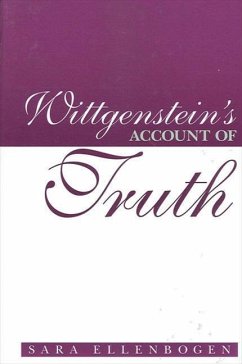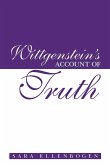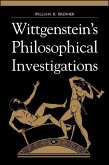Wittgenstein's Account of Truth challenges the view that semantic antirealists attribute to Wittgenstein: that we cannot meaningfully call verification-transcendent statements "true." Ellenbogen argues that Wittgenstein would not have held that we should revise our practice of treating certain statements as true or false, but instead would have held that we should revise our view of what it means to call a statement true. According to the dictum "meaning is use, " what makes it correct to call a statement "true" is not its correspondence with how things are, but our criterion for determining its truth. What it means for us to call a statement "true" is that we currently judge it true, knowing that we may some day revise the criteria whereby we do so.
Hinweis: Dieser Artikel kann nur an eine deutsche Lieferadresse ausgeliefert werden.
Hinweis: Dieser Artikel kann nur an eine deutsche Lieferadresse ausgeliefert werden.








